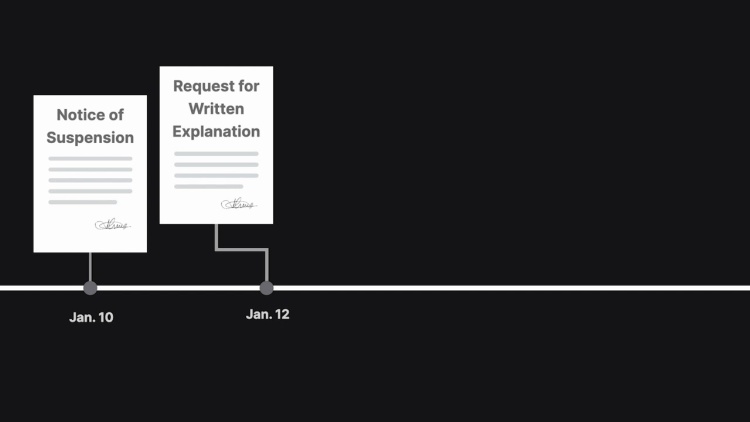Goetz v. Windsor Central School District
United States Court of Appeals for the Second Circuit
698 F.2d 606 (1983)

- Written by Sara Rhee, JD
Facts
Dennis Goetz (plaintiff) was employed as a cleaner for the Windsor Central School District (School District) (defendant). Goetz was classified as an at-will employee. Pursuant to a collective-bargaining agreement, the School District was required to provide Goetz with notice and an explanation prior to terminating his employment. Approximately one year after Goetz was hired, a series of thefts occurred at the School District’s offices. Goetz was arrested and charged with burglary in connection with the thefts. On January 10, 1981, while the charges were pending, the School District suspended Goetz. On January 12, 1981, the School District sent Goetz a letter requesting a written explanation regarding his involvement in the thefts. Goetz never responded. The School District also circulated a memorandum among the staff requesting that recent events at the school be subject to the strictest confidentiality. On January 19, 1981, Goetz sent a letter to the School District, alleging that his suspension without a hearing violated his constitutional rights. The letter requested that the School District provide Goetz with a hearing. On January 22, 1981, the School District terminated Goetz’s employment because he had failed to provide a written explanation pursuant to the January 12 letter. Goetz sued the School District, alleging that his termination had deprived him of property and liberty interests guaranteed by the Fourteenth Amendment. The United States District Court for the Northern District of New York granted summary judgment in favor of the School District. Goetz appealed.
Rule of Law
Issue
Holding and Reasoning (Cardamone, J.)
What to do next…
Here's why 907,000 law students have relied on our case briefs:
- Written by law professors and practitioners, not other law students. 47,100 briefs, keyed to 996 casebooks. Top-notch customer support.
- The right amount of information, includes the facts, issues, rule of law, holding and reasoning, and any concurrences and dissents.
- Access in your classes, works on your mobile and tablet. Massive library of related video lessons and high quality multiple-choice questions.
- Easy to use, uniform format for every case brief. Written in plain English, not in legalese. Our briefs summarize and simplify; they don’t just repeat the court’s language.





